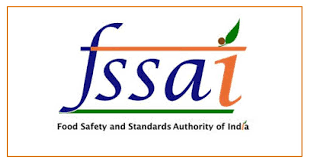What is the FSSAI registration fee or cost?
According to the 2011 Food Safety and Standards (Licensing and Food Business Registration) regulations, guidelines on the fee structure for food business competitors were created.
Food businesses in India are required to complete FSSAI registration, if a food business business fails to do so you will have to pay a fine for it.
FSSAI registration fee is divided into government expenses and specialist expenses. There is a government official fee for payment of application costs and a professional fee is charged to set up your application.
The FSSAI registry is divided into three different types. Basic Registry, State Registry and Central Registry. FSSAI fees for these registries are as follows:
1) Basic FOSCOS FSSAI License - Fee
Annual turnover less than 12 lakhs - 100 / - per year
2) State FOSCOS FSSAI license - fee
Annual turnover above 12 lakhs and less than 20 crores - 2000 / - or 5000 / - per annum
3) Central Phosos FSSAI License - Fee
Annual turnover 20 crores - 7500 / - per annum
Read more: FSSAI license fee


